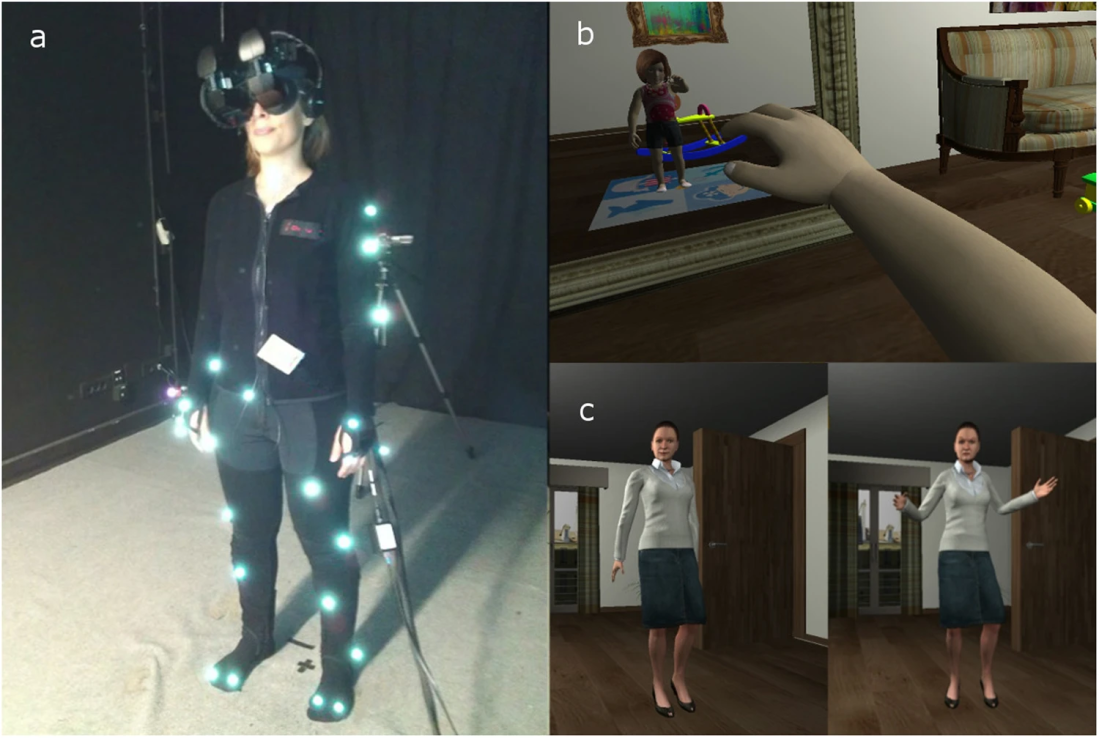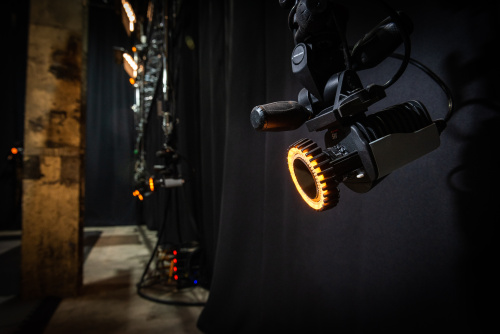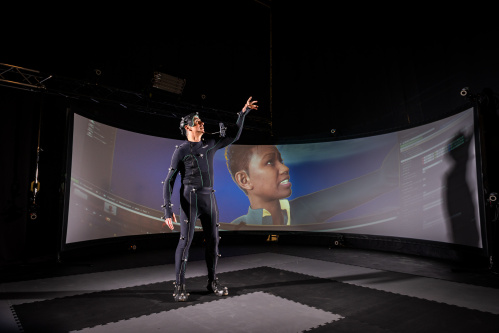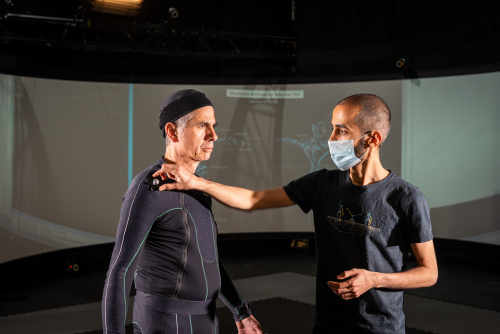Fully funded, MRC PhD studentship available
News

A fully-funded MRC PhD studentship is available to work with CAMERA’s Dr Karin Petrini (lead), Prof Catherine Hamilton-Giachritsis (University of Bath), Dr Daniel Finnegan (University of Cardiff) and Prof Debbie Wilson (University of Bristol).
The Project
‘Being in a child’s shoes: Assessing changes in parents’ empathy and perspective-taking by using a combination of VR and EEG methods.’
This project is one of a number that are in competition for funding from the GW4 BioMed2 MRC Doctoral Training Partnership (DTP) which is offering up to 20 studentships for entry in October 2022.
The DTP brings together the Universities of Bath, Bristol, Cardiff and Exeter to develop the next generation of biomedical researchers. Students will have access to the combined research strengths, training expertise and resources of the four research-intensive universities. More information may be found here: https://www.gw4biomed.ac.uk/.
The Research
Empathy has been given many diverse definitions, all of which describe a process allowing an individual to experience the feelings of another person and understand the situation that another person is in (Neumann et al., 2015). Empathy deficits have long been associated with a range of disorders and offending behaviours (Jolliffe & Farrington, 2004; Blair, 2012; Mitchie & Lindsay, 2012), Baron-Cohen, 2012).
The relationship between empathy and parenting difficulties, however, is less widely researched, despite empathy playing a significant role in both recognising and understanding a child’s emotions. Furthermore, empathy is notoriously difficult to induce and measure with self-report questionnaires being prominently used until a few decades ago (Neumann et al., 2015).
The development of new technologies such as immersive virtual reality (IVR) and methods such as electroencephalogram (EEG) has allowed researchers to measure changes in underlying brain activity in response to changes in empathy (Neumann et al., 2015). For example, a very recent study successfully used IVR and EEG to measure changes in brain activity in participants watching a video developed by a charity organisation depicting child maltreatment (Alimardani et al., 2020). This study showed that changes in self-reported measures of empathy when watching the video correlated with changes in EEG signals. Furthermore, IVR has been successfully used to increase empathy in mothers when taking the perspective of (embodying) a child-avatar who interacted with a supportive or derogative parent (Hamilton-Giachritsis et al., 2018). *
Hence, the aim of this PhD project is to combine EEG and IVR technologies using tasks similar to that used by Hamilton-Giachritsis et al. (2018) to determine brain responses during changes in negative and positive affective states of empathy. With parents embodying a young child-avatar, we will examine associations between self-report and EEG measures before and after IVR exposure as in Alimardani et al. (2020) as well as changes in parenting preferences following IVR.
In the first three months of the PhD the student will undergo a rotation period and shadow different PhD students and Research Associates working on different aspects of this project at the three involved GW4 Institutions. A rotation of this type will allow the student to gather an initial understanding of what the project will require in terms of skills and give the student the necessary understanding to tailor the project based on what the student finds most interesting and based on discussion with the target population, the parents, as well as social workers or professional who may be interested in using this knowledge and tools. Finally, during the PhD the student will be encouraged to disseminate the findings beyond academia into practice based organisations, and by the end of the PhD, the student will be also able to undertake a relevant placement of up to three months at existing partners such as the Cornerstone Partnership.
*Hamilton-Giachritsis, C., Banakou, D., Garcia Quiroga, M. et al. Reducing risk and improving maternal perspective-taking and empathy using virtual embodiment. Sci Rep 8, 2975 (2018). https://doi.org/10.1038/s41598-018-21036-2







